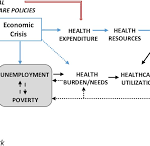What Is Medicare and What Does It Cover in Brazil?
Brazil has a distinctive healthcare system, but when discussing “Medicare” in the Brazilian context, it’s important to note that Brazil does not have a healthcare program called Medicare like the United States. Instead, Brazil’s universal healthcare system is known as the Sistema Único de Saúde (SUS). However, this article will use “Medicare” in a comparative sense to explain Brazil’s public healthcare system, its coverage, and how it compares to other countries’ programs like Medicare in the U.S.
1. Overview of the Sistema Único de Saúde (SUS)
SUS, established in 1988 under Brazil’s new constitution, provides universal healthcare to every Brazilian citizen and legal resident. It is one of the world’s largest public healthcare systems, aiming to offer free and equitable access to healthcare services to everyone, irrespective of their financial status. The creation of SUS was grounded in the belief that healthcare is a fundamental right for all citizens.
The guiding principles of SUS are:
- Universality: Every citizen has the right to access healthcare services.
- Equity: The system is designed to ensure that resources are allocated according to the healthcare needs of different population groups.
- Comprehensiveness: SUS aims to provide complete care, ranging from preventive services to complex treatments like surgeries and cancer care.
While the U.S. Medicare system is designed to serve specific groups (people over 65 and some disabled individuals), SUS offers services to all Brazilians, regardless of age, income, or health status. This fundamental difference shapes the scope of coverage and services.
2. What Does SUS Cover?
The SUS system is designed to offer comprehensive coverage. The services provided by SUS can be grouped into three main categories:
a. Primary Care
Primary care is the foundation of Brazil’s healthcare system. It focuses on preventive health services, health promotion, and basic medical treatment. SUS provides primary care through local health clinics (Unidades Básicas de Saúde) across Brazil. Some of the primary care services include:
- Family Health Program: Brazil’s Family Health Strategy (FHS) is a key component of primary care, where teams of doctors, nurses, and community health workers visit households, especially in rural and underserved areas, to offer preventive care, health education, vaccinations, and treatment for common illnesses.
- Vaccination Programs: SUS covers all recommended vaccinations free of charge. Brazil has a robust vaccination program that targets diseases such as polio, measles, yellow fever, and hepatitis.
- Maternal and Child Health: SUS provides prenatal care, childbirth services, and postnatal care, focusing on reducing maternal and infant mortality rates.
- Health Education and Disease Prevention: SUS focuses heavily on educating the population about hygiene, diet, and lifestyle factors that can prevent diseases. It also provides screening for conditions like diabetes and hypertension.
b. Secondary Care
Secondary care refers to specialized services and treatment for more complex medical conditions that go beyond the scope of primary care. In SUS, secondary care is delivered through regional hospitals and specialty clinics. These services include:
- Specialist Consultations: SUS offers access to various specialists, including cardiologists, dermatologists, and endocrinologists. However, access can be limited by long waiting times, particularly in rural or underserved regions.
- Diagnostic Tests: SUS covers essential diagnostic services like blood tests, X-rays, and ultrasounds. In more urban areas, advanced diagnostic services such as MRI scans and CT scans are also covered, though access can sometimes be delayed due to demand.
- Treatment for Chronic Diseases: SUS provides treatment and medication for chronic illnesses such as diabetes, hypertension, asthma, and HIV/AIDS. The system has been particularly praised for its HIV/AIDS treatment program, which offers free antiretroviral therapy to patients across the country.
c. Tertiary Care
Tertiary care is the highest level of medical care within the SUS system, and it includes specialized, complex treatments and surgeries. Some of the services covered by SUS at this level include:
- Surgeries: SUS provides coverage for a range of surgeries, from common procedures like appendectomies to more complex operations like heart bypasses, organ transplants, and cancer surgeries.
- Cancer Treatment: Cancer care is one of the most challenging areas in the Brazilian healthcare system due to the increasing number of cases. SUS covers chemotherapy, radiotherapy, and surgery for cancer patients, but the waiting times can be long, especially for more advanced treatments.
- Organ Transplants: Brazil has one of the world’s largest public organ transplant systems. SUS covers all stages of the transplant process, from initial assessment to post-operative care. Brazil is a global leader in liver transplants, with thousands of successful transplants performed annually.
3. Medications and Pharmacy Coverage
SUS provides a wide range of essential medications free of charge through the Programa Farmácia Popular. This program was created to ensure access to life-saving medications for all citizens, especially those with chronic conditions. It includes medications for:
- Hypertension
- Diabetes
- Asthma
- Contraceptives
- Antibiotics
- Cancer medications
The system also covers antiretroviral drugs for people living with HIV/AIDS, and drugs for tuberculosis and leprosy, reflecting Brazil’s commitment to treating infectious diseases. Some medicines are distributed directly by local health units, while others are available at participating pharmacies across the country.
However, there are instances where access to medications can be delayed due to shortages or logistical challenges, particularly in remote areas. This has led some people to purchase medications privately when necessary.
4. Private Health Insurance in Brazil
Although SUS is designed to provide universal coverage, about 25% of Brazilians rely on private health insurance to supplement or replace the public system. Private health insurance is primarily used by wealthier individuals or those who receive it as a benefit from their employers.
Private health insurance offers faster access to specialists, shorter waiting times, and more advanced hospital care. The National Supplementary Health Agency (ANS) regulates Brazil’s private health insurance market to ensure that private providers meet certain standards of care.
While private health insurance offers enhanced convenience and quicker access, it can be expensive, leaving many middle and low-income Brazilians reliant on SUS.
5. Challenges Facing SUS
Despite its wide-ranging coverage, SUS faces significant challenges that impact its ability to deliver timely, high-quality care to all Brazilians. Some of the key challenges include:
a. Underfunding
SUS is chronically underfunded, which affects the quality of services it can provide. Brazil’s healthcare budget is stretched thin, especially when considering the country’s size and the healthcare needs of its population. As a result, long waiting times, hospital overcrowding, and shortages of medical supplies are common issues.
b. Regional Disparities
Brazil is a large country with vast socioeconomic and geographical disparities. Healthcare in urban areas like São Paulo and Rio de Janeiro is generally better funded and better equipped than in rural or impoverished areas, particularly in the northern and northeastern regions. This creates inequities in access to care, with residents of poorer regions often experiencing worse health outcomes due to a lack of adequate medical facilities and professionals.
c. Human Resources
SUS also suffers from a shortage of healthcare professionals, particularly in rural areas. Many doctors, nurses, and specialists prefer to work in private hospitals or leave the country for better-paying jobs. The shortage of healthcare workers leads to increased waiting times and reduces the quality of care in certain regions.
d. Efficiency and Corruption
Like many public systems, SUS has been affected by issues of bureaucracy, inefficiency, and corruption. There have been instances of mismanagement and misuse of funds, which hinder the system’s ability to operate effectively. Efforts to increase transparency and improve governance within SUS are ongoing, but challenges remain.
6. Improvements and Future Outlook
To address these challenges, Brazil has been working on several initiatives aimed at improving the efficiency and quality of healthcare services under SUS. Some of the areas of focus include:
a. Increased Funding
To ensure the sustainability of SUS, there have been calls for increased public investment in healthcare. More funding would allow the government to expand services, reduce waiting times, and address the shortages of medical supplies and professionals.
b. Expansion of the Family Health Strategy
The Family Health Strategy has proven effective in improving access to healthcare in underserved regions. Expanding this program by hiring more health professionals and extending its reach to more rural areas could help reduce disparities and improve preventive care.
c. Public-Private Partnerships
Some analysts have suggested that public-private partnerships (PPPs) could help relieve some of the pressure on SUS by leveraging private sector resources and expertise. This could help improve infrastructure, expand service delivery, and enhance healthcare quality across the country.
Conclusion
Brazil’s Sistema Único de Saúde (SUS) is a remarkable achievement in terms of providing universal healthcare access to its citizens. It covers a wide range of services, from primary care and vaccinations to complex surgeries and treatments for chronic conditions. However, challenges such as underfunding, regional disparities, and resource shortages prevent SUS from fully realizing its potential.
As Brazil continues to work toward improving its healthcare system, the fundamental principles of universality, equity, and comprehensiveness remain at the core of SUS. By addressing its challenges and enhancing the efficiency and reach of its services, Brazil can build a more resilient, equitable, and sustainable healthcare system for all its citizens.


